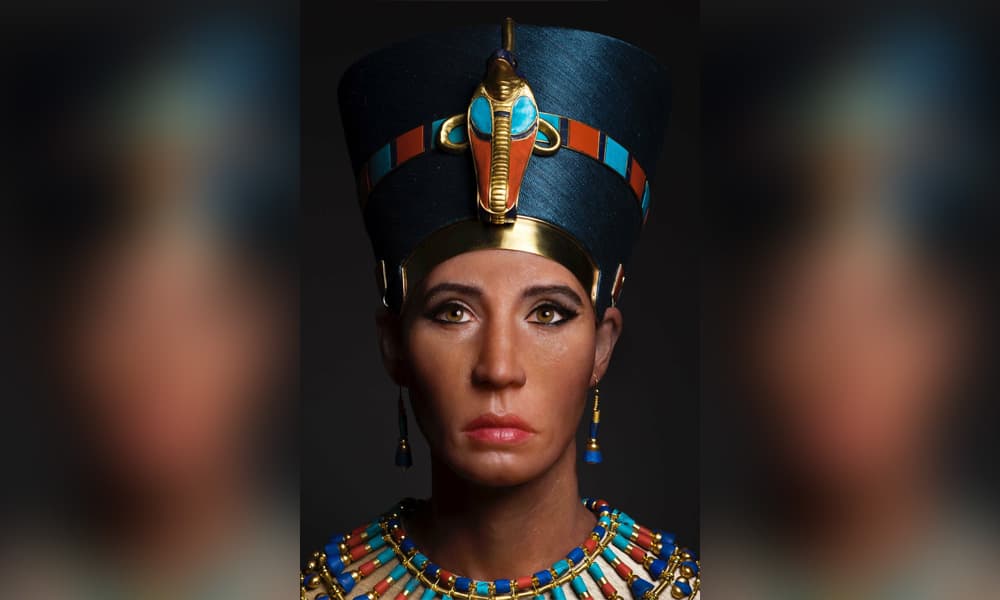Nefertiti
The Egyptian queen Nefertiti was Akhenaten’s Great Royal Wife (chief consort). It is believed that the sculptor Thutmose created the well-known stucco-covered limestone bust of the queen in Amarna, Egypt in the year 1345 B.C. It was discovered in the workshop of the sculptor in 1912. If you look at the sculpture, you can tell the Egyptian queen had defined facial features and was beautiful. Experts used 3D imaging to determine what Nefertiti actually looked like in person.

Nefertiti
What Nefertiti Really Looked Like
A team of University of Bristol scientists scanned and digitally mapped the facial structure of the mummy called “The Younger Lady,” believed to be Nefertiti, using 3D imaging technology. Paleoartist Elisabeth Daynes then spent 500 hours to recreate Nefertiti’s face on the bust. Based on the historical images of the Egyptian queen, this project appears to confirm the identity of “The Younger Lady” as Nefertiti. However, a lot of controversy surrounded the sculpture because of the artist’s color choice when it came to Nefertiti’s skin.

What Nefertiti Really Looked Like


